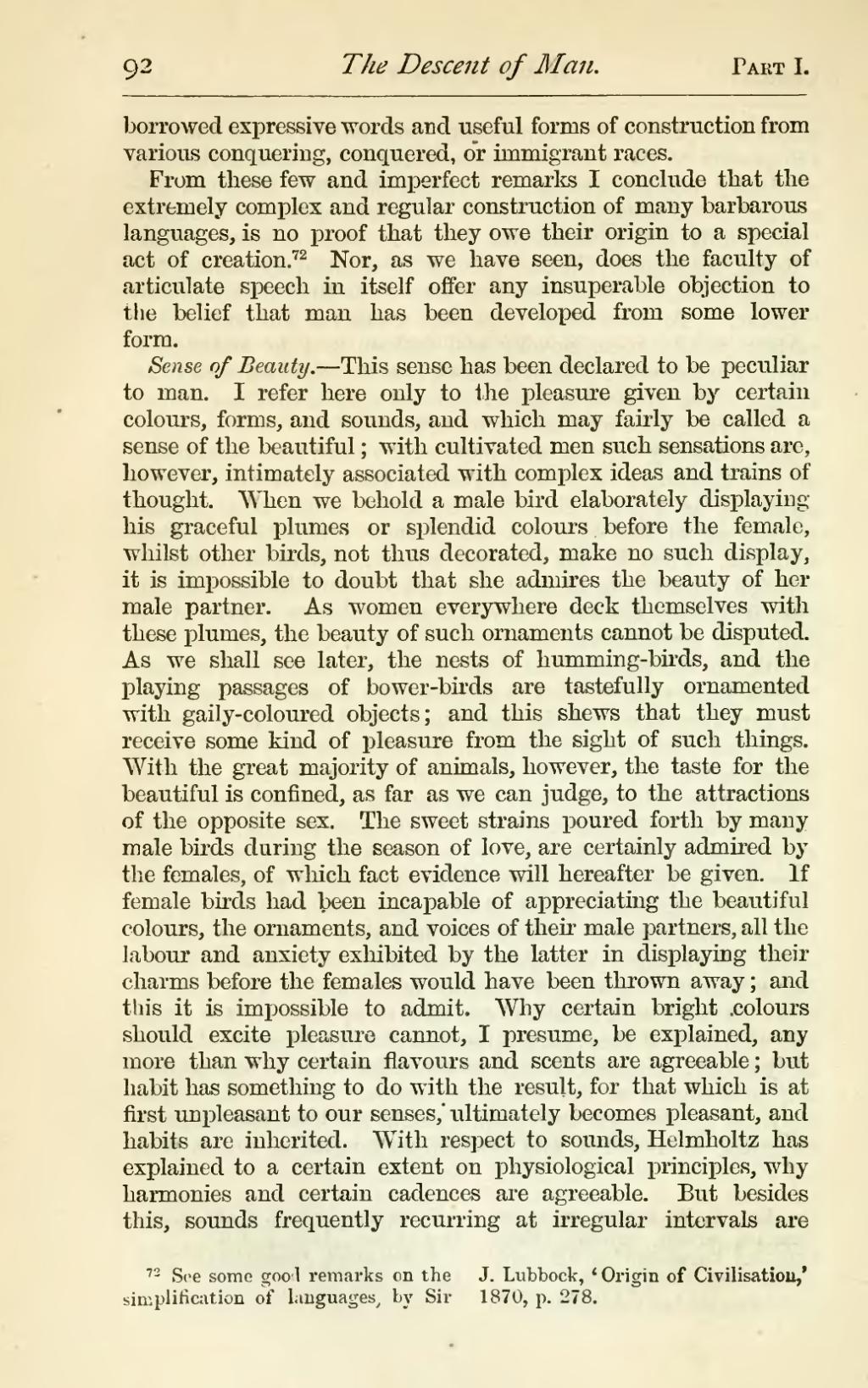borrowed expressive words and useful forms of construction from various conquering, conquered, or immigrant races.
From these few and imperfect remarks I conclude that the extremely complex and regular construction of many barbarous languages, is no proof that they owe their origin to a special act of creation.[1] Nor, as we have seen, does the faculty of articulate speech in itself offer any insuperable objection to the belief that man has been developed from some lower form.
Sense of Beauty.—This sense has been declared to be peculiar to man. I refer here only to the pleasure given by certain colours, forms, and sounds, and which may fairly be called a sense of the beautiful; with cultivated men such sensations are, however, intimately associated with complex ideas and trains of thought. When we behold a male bird elaborately displaying his graceful plumes or splendid colours before the female, whilst other birds, not thus decorated, make no such display, it is impossible to doubt that she admires the beauty of her male partner. As women everywhere deck themselves with these plumes, the beauty of such ornaments cannot be disputed. As we shall see later, the nests of humming-birds, and the playing passages of bower-birds are tastefully ornamented with gaily-coloured objects; and this shews that they must receive some kind of pleasure from the sight of such things. With the great majority of animals, however, the taste for the beautiful is confined, as far as we can judge, to the attractions of the opposite sex. The sweet strains poured forth by many male birds during the season of love, are certainly admired by the females, of which fact evidence will hereafter be given. If female birds had been incapable of appreciating the beautiful colours, the ornaments, and voices of their male partners, all the labour and anxiety exhibited by the latter in displaying their charms before the females would have been thrown away; and this it is impossible to admit. Why certain bright colours should excite pleasure cannot, I presume, be explained, any more than why certain flavours and scents are agreeable; but habit has something to do with the result, for that which is at first unpleasant to our senses, ultimately becomes pleasant, and habits are inherited. With respect to sounds, Helmholtz has explained to a certain extent on physiological principles, why harmonies and certain cadences are agreeable. But besides this, sounds frequently recurring at irregular intervals are
- ↑ See some good remarks on the simplification of languages, by Sir J. Lubbock, 'Origin of Civilisation,' 1870, p. 278.
